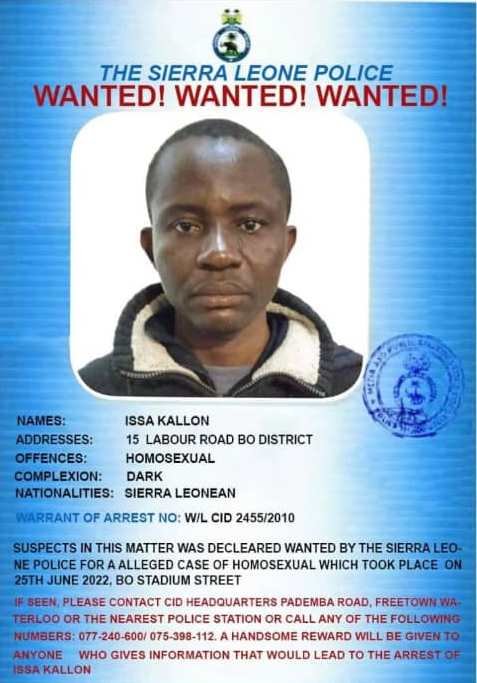Freetown, a city of over 1.2 million people, faces mounting urban and environmental challenges that threaten its future.
Over the years, the city’s population has grown rapidly, with registered vehicles increasing significantly and unplanned developments sprawling across wetlands and coastal areas.
In a recent interview, Mayor Yvonne Aki-Sawyerr shed light on these pressing issues, offering a sobering yet hopeful perspective on the city’s struggles with climate change, urbanization, and governance. Her insights reveal both the depth of the crisis and the urgent need for collective action.
Mayor Aki-Sawyerr began by reflecting on the dramatic shifts in Freetown’s local climate. Citing Hamilton as an example, she recalled a time when the area was cool enough for residents to wear jumpers and live without air conditioning. This was the norm in many parts of Freetown, including Hill Station, where my own parents lived without ever needing air conditioning. Today, however, such cool conditions have largely disappeared, replaced by rising temperatures that reflect both global climate change and localized actions exacerbating the crisis. The Mayor’s memories of mist-covered verandas and cool breezes now stand in stark contrast to the heat that has become the new normal. These changes highlight the urgent need for both global and local action to mitigate the worsening effects of climate change.
One of the most alarming issues discussed by the Mayor is the unregulated urbanization of areas like Cockle Bay. Over the years, this wetland has been reclaimed through harmful practices, including dumping garbage, compacting and covering it with soil to create land for housing. While this may provide short-term solutions to the housing crisis, it has devastating long-term consequences. Wetlands, which serve as critical ecosystems under international agreements like the Ramsar Convention, are being destroyed at an alarming rate. These areas are not only essential breeding grounds for fish, oysters, and other marine life but also act as natural barriers against flooding. Their destruction has led to significant biodiversity loss and increased vulnerability to environmental disasters.
Furthermore, the garbage used to create this reclaimed land is not static. It moves with the tide, polluting nearby beaches such as Lumley, Lakka, and Tokeh, which are vital to Freetown’s tourism industry. Mayor Aki-Sawyerr warned that if these practices continue unchecked, Freetown could lose more of its coastline, turning vibrant beaches into polluted wastelands. She also pointed out that this issue is not just an eyesore but a threat to the city’s economic potential, as it undermines efforts to develop a sustainable blue economy.
A major obstacle in addressing these challenges is the limited authority of local councils. Mayor Aki-Sawyerr highlighted that the Freetown City Council has no control over land sales, land use planning, or building permits—areas that are crucial for regulating urban development. As a result, harmful practices like constructing buildings in waterways or on reclaimed wetlands continue unabated. The mayor described the frustration of often learning about new developments only after they are already underway, leaving the council powerless to intervene. This lack of jurisdiction has led to chaotic urban growth, with poorly planned structures contributing to congestion, inefficiency, and environmental degradation.
The interview also touched on broader systemic challenges in urban management. Freetown’s rapid population growth has outpaced its infrastructure, leading to significant issues with traffic, parking, and public transportation. The mayor emphasized the importance of comprehensive urban planning, noting that in other cities, developers are required to provide parking solutions before constructing high-rise buildings. Such measures ensure that new developments align with the city’s infrastructure and management goals. However, in Freetown, the absence of integrated planning has resulted in severe inconveniences for residents and a diminished quality of life.
Despite the overwhelming nature of these challenges, Mayor Aki-Sawyerr remains optimistic about Freetown’s future. She rejected the idea that it is too late to reverse the damage, expressing hope that immediate action can prevent further harm. The mayor called for national-level attention to these issues, urging the implementation of policies that prioritize sustainable development and environmental protection. She also stressed the need for collaboration among local councils, the national government, and international partners to address the interconnected problems of urbanization, climate change, and governance.
This interview serves as both a wake-up call and a rallying cry for Freetown. The city stands at a crossroads, facing significant challenges but also holding immense potential for transformation. Mayor Aki-Sawyerr’s vision underscores the need for bold, collective action to preserve Freetown’s future and ensure that it remains a livable, sustainable city for generations to come.






























































































































































































































































































































































































































































































































































































































































































































































































































































































































































































































































































































































































































































































































































































































































































































































































































































































































































































































































































































































































































































































































































































































































































































































































































































































































































































































































































































































































































































































































































































































































































































































































































































































































































































































































































































































































































































































































































































































































































































































































































































































































































































































